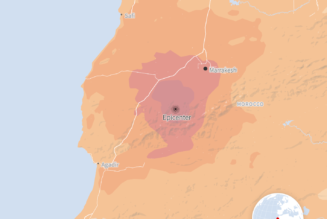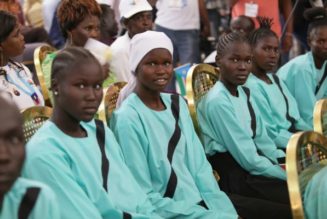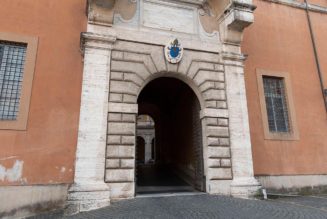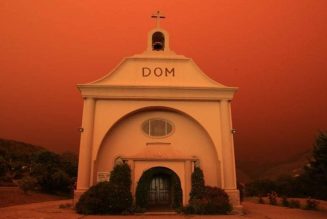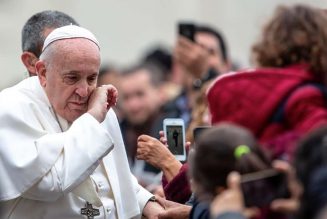Rome Newsroom, Sep 8, 2024 / 09:10 am
Pope Francis on Sunday encouraged Catholics in a remote town in Papua New Guinea to continue to be missionaries where they live, working together to replace superstition and fear with love.
After celebrating Mass in Port Moresby on Sept. 8, the pope traveled 620 miles by air to Vanimo, a coastal town on a peninsula in northwest Papua New Guinea close to the border with Papua, a province of Indonesia.
The pontiff reached the popular surfing destination, known for its white sand beaches, after a two-hour flight aboard an Australian C-130 military plane.

Aboard the plane, Francis brought medicine, clothing, toys, and other necessities to help people living in the remote area, the Vatican confirmed.
Sitting outside of the Pro-Cathedral of the Holy Cross in Vanimo, the pope told an estimated 20,000 local Catholics to be missionaries where they live: “at home, at school, in the workplace, so that everywhere — in the forests, villages and cities — the beauty of the landscape is matched by the beauty of a community where people love one another.”
“In this way, we will increasingly form a great orchestra,” Francis added, “able with its notes to ‘recompose’ rivalries, to overcome divisions — personal, family and tribal, — to drive out fear, superstition and magic from people’s hearts, to put an end to destructive behaviors such as violence, infidelity, exploitation, alcohol and drug abuse, evils which imprison and take away the happiness of so many of our brothers and sisters, even in this country.”
The Catholic diocese of Vanimo has around 41,000 Catholics, about 30% of the area’s population, according to the Vatican.
After a history of missionary bishops, since 2018 the diocese has been led by Bishop Francis Meli, who was born in the Archdiocese of Rabaul in Papua New Guinea.
The diocese, a missionary area, was first formed as an apostolic prefecture in 1963.
Towards the end of the pontiff’s meeting with Catholics, Bishop Meli consecrated the Diocese of Vanimo to the Virgin Mary.

“After visiting your country, many tourists return home saying they have seen ‘paradise,’” Pope Francis said. “They usually refer to the natural beauty they enjoyed. We know, however, that this is not the greatest treasure. There is a more beautiful and fascinating treasure that is found in your hearts and that manifests itself in the charity with which you love each other.”
“The most precious gift you can share with everyone is to make Papua New Guinea famous not only for its variety of plant and animal life, its enchanting beaches and clear sea, but famous above all for the good people you meet here,” he said.
While in Vanimo, Pope Francis also visited Holy Trinity Humanistic School, a Catholic school founded in 1964 by Passionist missionaries.
The school, located in the village of Baro, just outside Vanimo, has 400 elementary students and another 100 students in the newly-established middle school.
(Story continues below)
Subscribe to our daily newsletter
📹 HIGHLIGHTS | After a two-hour flight aboard an Australian C-130 military plane, Pope Francis arrived in the coastal city of Vanimo, Papua New Guinea, where 20,000 local Catholics gathered at the Holy Cross Pro-Cathedral to meet him. #PopeinPNG pic.twitter.com/JbpKUdR0ro
— EWTN Vatican (@EWTNVatican) September 8, 2024
The pope’s day concluded with a private meeting with missionaries, also featuring a short concert by the Queen of Paradise Children’s Orchestra, before he flew back to Port Moresby for the night.
Francis’ three-day visit to Papua New Guinea, where there are 2.5 million Catholics, was the second leg of an 11-day trip to Southeast Asia and Oceania.
His meeting with missionaries and Catholics in Vanimo took place in the afternoon after celebrating Mass for approximately 35,000 Catholics from across Papua New Guinea and Oceania in Sir John Guise Stadium in Port Moresby.
Pope Francis will return to the Sir John Guise Stadium on Monday to speak to young people before departing for East Timor, continuing his 11-day apostolic journey to Southeast Asia and Oceania.



